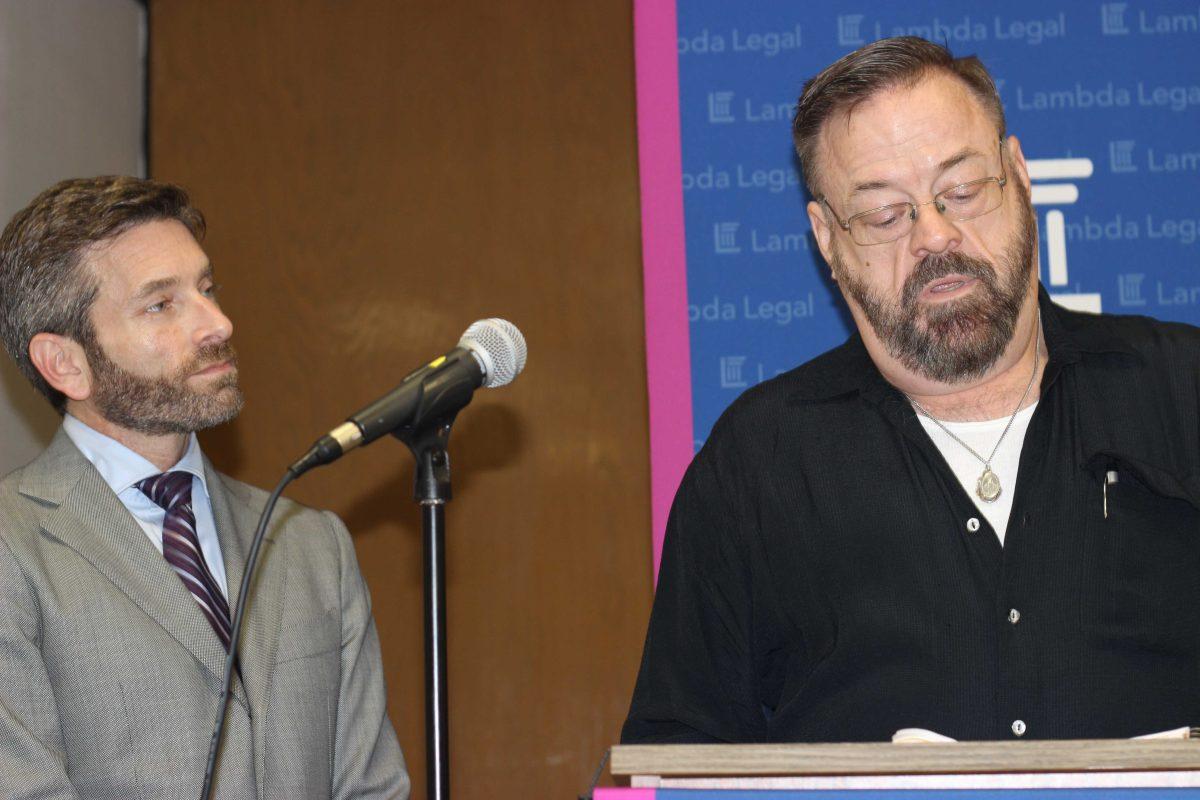Louisiana continues to complicate the funding for HIV/AIDS patients, and in a country where health care coverage is a much-talked about topic, this issue remains on the back burner.
The battle to keep low-income Louisiana HIV/AIDS patients covered took a turn Monday when three insurance companies agreed to continue accepting third-party payments until Nov. 15.
This agreement came as U.S. District Judge Brian Jackson considered placing a long-term injunction preventing the companies from refusing to accept the payments.
This battle is not over yet, though.
Back in February, Blue Cross Blue Shield of Louisiana announced that the insurance company intended to stop accepting third-party payments for individual policies.
Fellow Obamacare-selling companies Louisiana Health Cooperative and Vantage Health Plan joined the cause soon after.
This announcement came as a shock to low-income HIV/AIDS patients of Louisiana, who depend on a federal program to finance their insurance policies.
In response, Lambda Legal, a national organization that advocates for the rights of HIV/AIDS victims, gay men, lesbians and transgender people, filed a lawsuit alleging that the companies were discriminating against people with the disease and violating the Affordable Care Act by not accepting the federal program’s payments.
Now, I am the type of person who judges Americans for suing one another for mundane reasons, but in this instance, I agree with the plaintiffs. Someone had to speak out for the many people who would have been left uncovered and untreated had this restriction been allowed.
Refusing to take the money from the program is not only completely uncalled for, but it also makes no sense.
Louisiana had the third highest poverty rate in 2012.
Baton Rouge has had the highest number of AIDS cases per capita in the U.S. for the past two years.
These two facts alone lead me to think that, whoever is calling the shots for these insurance companies is in serious need of a reality check.
The Ryan White HIV/AIDS Program was set up to help low income patients finance their insurance policies, so they can be properly treated for the disease.
If the government sets aside money for the treatment of HIV/AIDS, why would companies reject it?
Blue Cross Blue Shield of Louisiana stated that the rejection came from an effort to prevent fraud, after a directive from the Center for Medicare and Medicaid Services “strongly advised” companies against accepting third party payments. However, the organization claimed last month that the Ryan White foundation was not included in that recommendation.
From a business perspective, it makes sense to want to prevent fraud, but since there is no evidence of fraud from the Ryan White Program, why not accept their money?
Now that the court case has been settled, HIV/AIDS patients can take a deep breath, but there is still another factor to consider.
According to the 2014 Baton Rouge Annual Operating Budget, the Ryan White program will have 7.43 percent less money to help Baton Rouge residents suffering from the disease.
I think the money is going in the wrong direction.
Some could argue it’s not the city’s job to handle the care of an easily preventable disease, but given that Louisiana houses the American capital of AIDS, it should now be more of a priority to keep people healthy than to prove a point.
Changes in the health care system will always be subject of debate, and how people will be affected by these changes should be the first topic of discussion.
Jose Bastidas is a 20-year-old mass communication junior from The Woodlands, Texas.
Opinion: HIV patients overlooked by insurance companies
March 11, 2014
John East (left) and attorney Scott Schoettes discuss a lawsuit that the advocacy group Lambda Legal filed Thursday Feb. 20, 2014 against three Louisiana insurance companies. The suit asks the federal district court to make insurance companies in the state continue to take premium payments under the federal Ryan White program to help people with HIV and AIDS pay for health care. (AP Photo/Janet McConnaughey)





